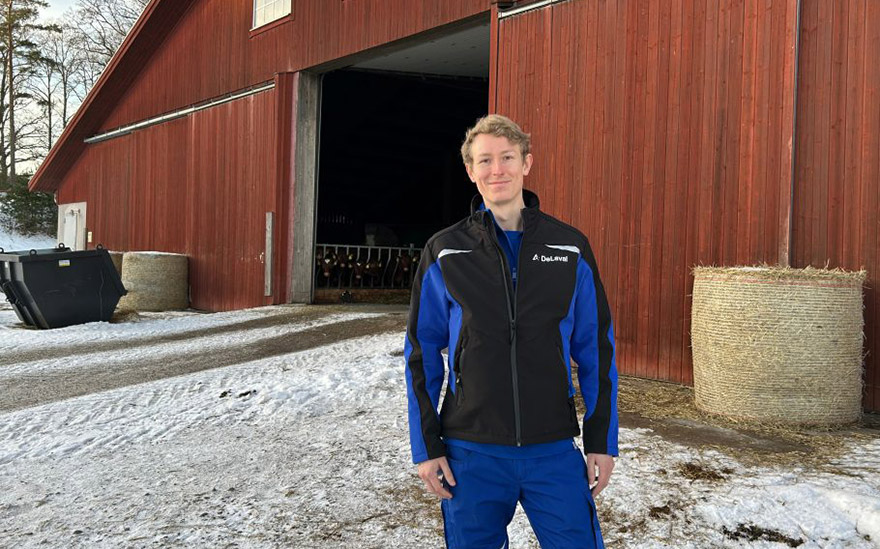Engineering the future of the dairy industry: DeLaval deepens collaboration with leading Swedish university
11 April, 2024 | News
- DeLaval will help shape a new mechatronics master’s program at KTH Royal Institute of Technology.
- This type of collaboration provides graduates with in-demand skills while also driving the use of innovative technologies, such as artificial intelligence and automation, in the dairy industry.

Johan Rågmark, an electronic engineer at DeLaval, will serve as an industry mentor for KTH mechatronics students.
DeLaval is taking part in an industrial reference group for a brand-new master’s programme in mechatronics at KTH Royal Institute of Technology (KTH). Selected as one of the key industry partners by KTH, ranked among the top 50 universities globally for engineering, we are actively involved in shaping the curriculum. Such partnerships not only cultivate a meaningful connection between academia and industry but also equip future graduates with sought-after skills, driving innovation within the dairy industry and benefiting society at large.
DeLaval’s role involves providing industry-focused insights into the skills required by engineering students, both now and in the future. Additionally, two of our team members, Johan Rågmark, an electronic engineer, and Felicia Vieider, a software engineer, will serve as industry mentors and advisors for a mechatronics course project.
Björn Möller, Head of the Mechatronic Unit, KTH Machine Design, says: “KTH collaborates with companies like DeLaval to contribute to the shaping of our curriculum. Our objective is to incorporate industry perspectives by involving companies in our reference group for our mechatronic master’s education. This ensures alignment with industry standards and provides students with practical, hands-on experience prior to graduation.”
This new collaboration with KTH stems from our 2021 partnership, spearheaded by Daniel Brun, a software engineer at DeLaval who holds a background in mechanical engineering and mechatronics from KTH.
Since 2021 we’ve been actively engaged in various activities with KTH, including the mechatronics master’s major project unit, master’s thesis projects, and visits to Hamra Farm, where we demonstrate DeLaval’s technology firsthand.
Daniel says: “We’re privileged to work with KTH and shape the skills engineers need upon graduation. DeLaval integrates advanced technologies into practical solutions for dairy farming automation – this is an area that we are focusing on as it is the future of dairy farming – providing vast opportunities for engineering students.”
He says working with the mechatronics department is a perfect fit, as it’s all about combining software, mechanics, and electronics. “Mechanical engineering focuses on developing advanced solutions for modern farming practices, while software engineering students work on projects from low-level programming to high-level applications, using data-driven analysis and AI to improve our offerings. “
Johan Rågmark agrees, saying that industry-led collaborations like this are vital for meeting the evolving demands of the dairy sector: “Automation, robotics, and the Internet of Things (IoT) are driving the need for skilled engineers, which are crucial for the future of dairy. These technologies enhance efficiency and productivity. Our ongoing collaboration aims to prepare students for the challenges and opportunities presented by this technological transformation, actively incorporate the latest research from various fields into our product development processes and continually recruit new talents to foster innovation.”
Currently, there are seven KTH students working on full-time projects with us. In our product development department, they tackle challenges such as designing electronics for products like the automatic milking robot VMS V300.
DeLaval also collaborates with other academic institutions worldwide.
Stayed tuned for our next article where we will discuss how two KTH master’s thesis students are working with DeLaval to enhance the integration of AI technology with the VMS™ 300 robotic arm.
Read press release Engineering the future of the dairy industry on corporate.delaval.com